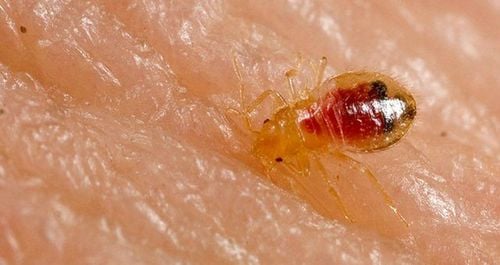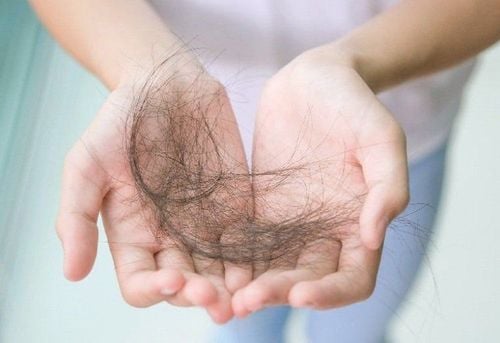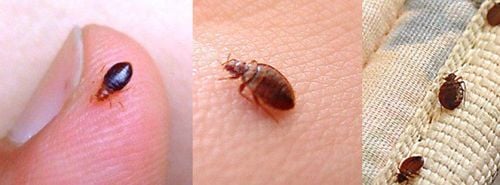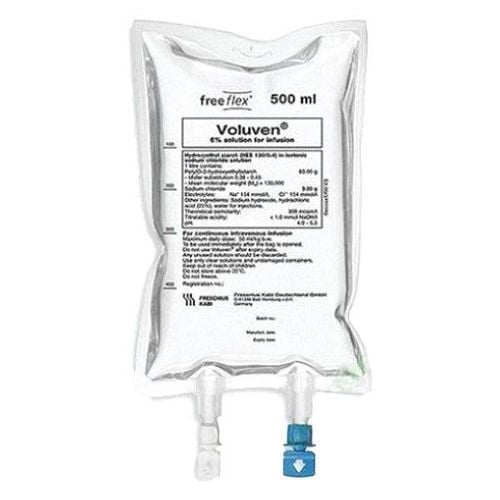This is an automatically translated article.
Children are the subjects most at risk of contracting insect-borne diseases because their resistance is often more immature than that of adults. There are a number of insect-borne diseases that children are susceptible to, including Lyme disease, dengue fever, West Nile fever, etc. If not treated early, these diseases can cause complications. dangerous to children's health.
1. Some insect-borne diseases that children often get
Children are often the most vulnerable because their resistance is often weaker than adults. In particular, children are often at high risk for some of the following infectious diseases caused by insects:
1.1.Lyme disease Lyme disease is an infection that children can get after being infected with ticks that carry Borrelia bacteria. burgdorferi bite. This disease was first known in 1975 and is quite common to this day.
In general, the chance of a child getting Lyme infection is very small unless the area where the child lives has widespread Lyme disease in the community. On the other hand, only black ticks are vectors, and not all black ticks carry the virus.
Even if a child is bitten by a disease-carrying tick, it must remain on the baby's skin for a significant amount of time (usually more than 36 hours) in order to transmit the disease. As such, the risk of Lyme disease in children is quite low. But that doesn't mean you shouldn't take precautions, as untreated Lyme disease can cause serious complications.
Furthermore, Lyme disease can cause many other diseases, including anaplasmosis, babesiosis, Rocky Mountain spotted fever, Southern tick-borne rash (STARI), malaria, and rickettsiosis 364D.
Lyme disease is very “good” at mimicking the symptoms of many other diseases, making it difficult to diagnose. About 70-80% of cases of Lyme disease have symptoms such as a rash that appears on any area of the body. The rash usually lasts from three days to a month after the bite. The rash looks like oval or circular red spots that surround the skin, and then a ring of rash that expands like a bull's eye. On darker skin, the rash may look like a bruise.
Initial symptoms can vary, including fever, fatigue, headache, muscle and joint aches, swollen lymph nodes, or a rash. In addition, the infection can also affect the joints, heart, and nervous system. The following symptoms can appear years after a tick bite, including:
Severe headache Rash Stiff neck Facial paralysis (loss of muscle tone, drooping on one or both sides of the face) Arthritis , especially in large joints such as the knees Pain in the muscles, tendons, bones, and joints Fast or irregular heartbeat Dizziness or trouble breathing Meningitis Nerve pain Numbness or tingling in the hands and feet Temporary memory loss

Trẻ có thể xuất hiện tình trạng đau đầu dữ dội
Diagnosis can be especially difficult, and Lyme disease, when left untreated, leads to long-term health problems. If you're pregnant, it can put your baby at risk for certain birth defects and stillbirth. If you find ticks on you or your child's body, carefully use tweezers to remove them.
1.2. Zika disease Zika virus disease is usually caused by a virus that is transmitted by mosquitoes. This is indeed a potential threat to children's health, especially in tropical or subtropical areas.
Zika virus was first discovered in 1947, in Uganda. It is transmitted by mosquitoes that suck blood from an infected person and pass it on to a healthy person. The virus is even spread through sex and from mother to child.
Most symptoms of Zika go away on their own after a few weeks, sometimes the person with the disease does not show any symptoms. In general, Zika virus disease usually has the following symptoms:
Fever Headache Rash Joint pain Muscle pain Subconjunctival congestion Back pain Zika infection during pregnancy can lead to birth defects in young children, such as microcephaly. In addition, studies have also found that one-third of toddlers exposed to Zika in the womb will have neurological problems. Other risks include eye defects, growth impairment, or hearing loss.
To be able to reduce symptoms caused by Zika virus, you can apply measures at home such as getting enough rest, drinking plenty of water to avoid dehydration, consider using Use pain relievers and fever reducers under the direction of your doctor.
1.3. West Nile Fever West Nile Fever is an infectious disease caused by mosquitoes when they feed on birds that carry the virus. Although this virus is still quite rare, it has a very high mortality rate. In general, the disease is not usually spread directly from person to person, nor is it transmitted by blood, birth, or birth. breastfeeding or organ transplantation. Symptoms of West Nile fever usually include headache, fever, muscle aches, swollen glands; However, many people with the disease show no symptoms. According to statistics, about 1 in 150 people with West Nile fever can develop another serious illness, even death. In particular, people with compromised immune systems and the elderly are often those most at risk.
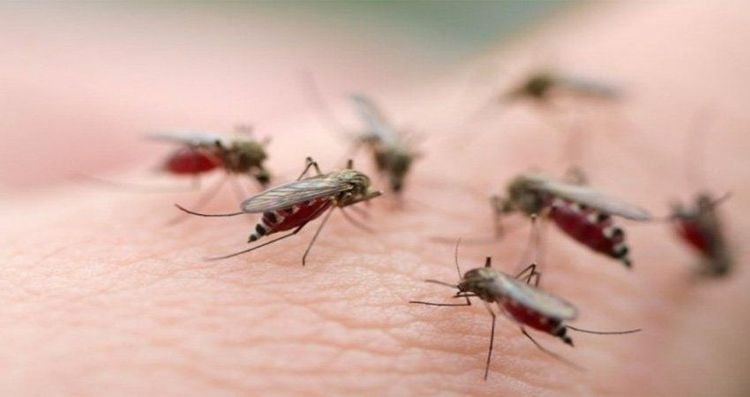
Bệnh sốt Tây sông Nile do muỗi mang virus gây ra
1.4.Dengue Fever Dengue fever is a dangerous disease caused by the Dengue virus. It is transmitted by the mosquito that carries the virus. Scientists believe that dengue fever will become more and more threatening to human health as the global climate is warming.
The most common symptoms of dengue usually include:
High fever Severe headache Severe pain behind the eyes Pain in joints, muscles and bones Bleeding gums Rash or redness all over the body More serious symptoms, including vomiting blood, nosebleeds, irregular menstrual cycle, nausea, lethargy, lack of blood to the brain, seizures, cold sweats or trouble breathing.
In particular, infants and pregnant women are at high risk of severe infection due to dengue. When your child shows signs of illness, it is best to take your child to a medical facility as soon as possible for timely treatment.
1.5. Chagas disease Chagas disease is caused by a parasite called Trypanosoma cruzi found in the feces of the blood-sucking stink bug Triatoma.
This disease can be transmitted through many different ways, including:
Open wounds on the skin that come in contact with feces containing Triatoma bugs Through food: when eating sticky foods Bug faeces transmit disease Mother-to-child transmission during pregnancy Blood-borne transmission Transmitted by organ transplant At worst, this disease if not treated early can cause problems heart or bowel problems. Furthermore, like Lyme disease, the diagnosis is often quite difficult. In general, symptoms of Chagas disease can be flu-like, or include acute eyelid swelling.
If you suspect you have been bitten by this bug, contact your doctor immediately for prompt treatment.
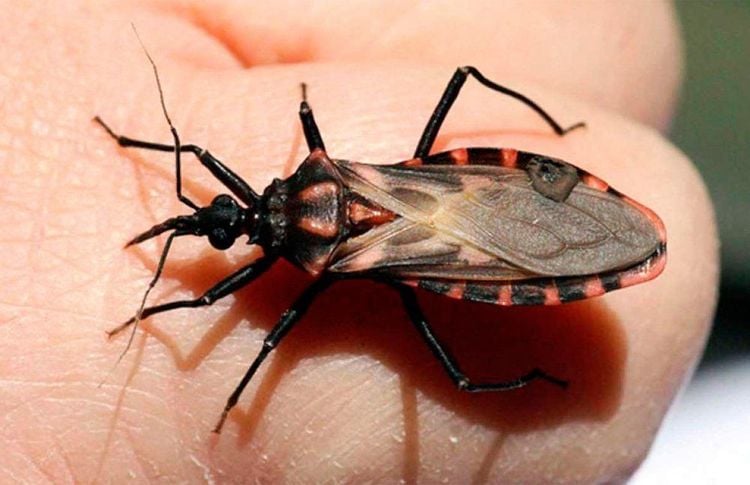
Hình ảnh loài bọ xít hút máu Triatoma gây ra bệnh Chagas
2. How to prevent insect bites?
In recent years, infectious diseases caused by insect bites in both children and adults have shown signs of significant increase. However, we can completely prevent and reduce the risk of infection through the following measures:
Use insect repellent: use insect repellent approved by the Department of Health. US Environmental Protection Agency (EPA) if you are in an area where mosquitoes or ticks transmit disease. In addition, you should also check to see if the insect repellent is safe for children. Avoid areas where ticks live: areas with dense vegetation, leafy ground or tall grass often create a very favorable habitat for this bloodsucking insect. If you go to these locations, wear long pants and check your body and clothing for ticks. In addition, you should also check your pets for ticks. Wear loose, long-sleeved clothing: Light-colored, long-sleeve clothing that covers your feet can help protect you and your baby from mosquito bites. Sanitize living areas: to prevent the development and reproduction of disease-carrying mosquitoes, you should clean all indoor areas, especially where water is stored, or damp. Also, sweep up trash regularly and clean children's play areas to reduce the number of ticks. Travel vigilance: if you're traveling in an area with a high risk of insect transmission, it's best to make sure you take and strictly follow the precautions recommended by the health department. . When a child has abnormal signs of health, parents can take the child to Vinmec Health system for timely examination and treatment.
As a key area of Vinmec Health System, Pediatrics Department - Vinmec International General Hospital always brings satisfaction to customers and is highly appreciated by industry experts thanks to the following advantages:
gathers a team of leading doctors and doctors in Pediatrics: including leading experts, with high professional qualifications (professors, associate professors, doctorates, masters), experienced, having worked in different hospitals. big hospitals like Bach Mai, 108.. The doctors are all well-trained, professional, have a heart - reach, understand young psychology. In addition to domestic pediatric specialists, the Department of Pediatrics also has the participation of foreign experts (Japan, Singapore, Australia, USA) who are always pioneers in applying the latest and most effective treatment regimens. . Comprehensive services: In the field of Pediatrics, Vinmec provides a series of continuous medical examination and treatment services from Newborn to Pediatric and Vaccine,... according to international standards to help parents take care of their baby's health from birth to childhood. from birth to adulthood Specialized techniques: Vinmec has successfully deployed many specialized techniques to make the treatment of difficult diseases in Pediatrics more effective: neurosurgery - skull surgery, stem cell transplantation. blood in cancer treatment. Professional care: In addition to understanding children's psychology, Vinmec also pays special attention to the children's play space, helping them to have fun and get used to the hospital's environment, cooperate in treatment, improve the efficiency of medical treatment.
Please dial HOTLINE for more information or register for an appointment HERE. Download MyVinmec app to make appointments faster and to manage your bookings easily.
Reference source: babycenter.com




